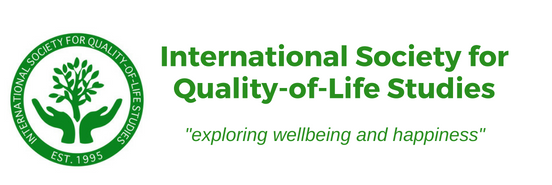Colleagues,
A grant study (Carroll et al., 2020) with a control group was just published under the Journal of Behavioral Medicine . Quality-of-Life-Therapy was used to improve positive emotions among patients with cardio-implantable cardioverter defibrillators (ICDs). This is the 3rd grant-supported study with a control group (Rodrigue, Baz et al. 2005, Rodrigue, Mandel, et al. 2005). Quality-of-Life-Therapy meets the clinical psychology criteria summarized by Kazdin for an evidence-based intervention (Frisch, 2016), and Seligman agrees: it has “good empirical validation” (Seligman, 2011; Rashid and Seligman, 2014). The three grant studies provide data in support of the sensitivity to treatment-related changes on the part of the Quality-of-Life-Inventory.
Mike
Download here:
J Behav Med.pdf
Frisch 2016.pdf
References
Abedi, M.R. and Vostanis, P. (2010). Evaluation of Quality of Life Therapy for parents of children with obsessive-compulsive disorders in Iran. European Child and Adolescent Psychiatry.
Carroll, A.J., Christon, L.M., Rodrigue, J.R., Fava, J.L., Frisch, M.B, & Serber, E.R. (2020). Implementation, feasibility, and acceptability of Quality-of-Life-Therapy to improve positive emotions among patients with implantable cardioverter defibrillators. Journal of Behavior Medicine, in press and online 2020. https://doi.org/10.1007/s10865-020-00153-2 .
Clark, D.A. (2006). Foreword. In M.B. Frisch, Quality-of-Life-Therapy (pp. xi-x). Hoboken, New Jersey: John Wiley & Sons.
Frisch, M. B. (2006). Quality-of-Life-Therapy. Hoboken, New Jersey: John Wiley & Sons.
Frisch, M.B. (2009). Quality-of-Life-Inventory Handbook: A Guide for Laypersons, Clients, and Coaches. Minneapolis, MN: NCS Pearson and Pearson Assessments.
Frisch, M.B. (2016), Quality-of-Life-Therapy, In A.M. Wood and J. Johnson (Eds.), The Wiley Handbook of Positive Clinical Psychology, New York: John Wiley & Sons.
Frisch, M. B., Clark, M. P., Rouse, S. V., Rudd, M. D., Paweleck, J., & Greenstone, A. (2005). Predictive and treatment validity of life satisfaction and the Quality-of-Life-Inventory. Assessment, 12, 66–78.
Kazdin, A. E. (2006). Arbitrary metrics: Implications for identifying evidence-based treatments. American Psychologist, 61(1), 42-49.
Land, K. C. (2006). Quality of Life Therapy for All!: A review of Frisch’s approach to positive psychology, Quality of Life Therapy. SINET (Social Indicators Network News), 85, 1-4.
Rashid, T. and Seligman, M. E. P. (2011). Positive psychotherapy. In D. Wedding and R. Corsini (Eds.). Current Psychotherapies (10th Ed.)..
Rodrigue, J.R. Mandelbrot, D.A., and Pavlakis, M. (2011). A psychological intervention to improve quality of life and reduce psychological distress in adults awaiting kidney transplantation. Nephrology Dialysis Transplantation, 26(2): 709-715.
Rodrigue, J.R., Widows, M.R., & Baz, M.A. (2006). Caregivers of patients awaiting lung transplantation: Do they benefit when the patient is receiving psychological services, Progress in Transplantation, 16, 336-342.
Rodrigue, J. R., Baz, M.A., Widows, M.R. , & Ehlers, S.L. (2005). “A Randomized Evaluation of Quality of Life Therapy with Patients Awaiting Lung Transplantation”. American Journal of Transplantation, 5, 2425-2432.
Seligman, M. E. P. (2011). Flourish. New York: Free Press.
___________________________________________________
Mike Frisch
Retired Professor of Psychology
Baylor University
Website: http://sites.baylor.edu/michael_b_frisch
